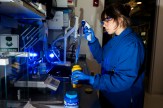Are robots out to steal our jobs? No, say Northeastern students, who will be sharing research with an international audience into how machines and humans can work together.
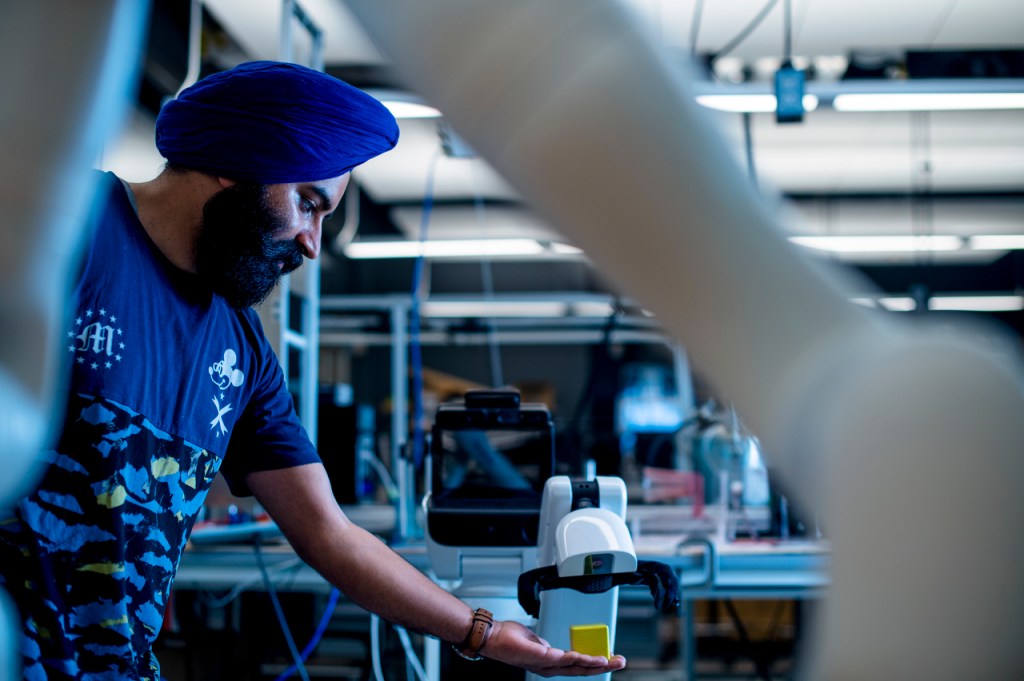
A group of robotics engineering students on Northeastern’s Boston campus is headed to Denmark later this month on a mission focused on global collaboration and knowledge-sharing.
The Northeastern students—six in all—will attend a robotics summer school organized by the Danish government and private companies there. The inaugural program runs July 28-August 13 and will be held at the University of Southern Denmark in the city of Odense, the hub for more than 50 robotics companies.
This is no ordinary summer school. It is an elite, selective program whereby global universities with renowned robotics departments were invited to participate, according to Taskin Padir, associate professor of electrical and computer engineering at Northeastern and director of the university’s Institute for Experiential Robotics.
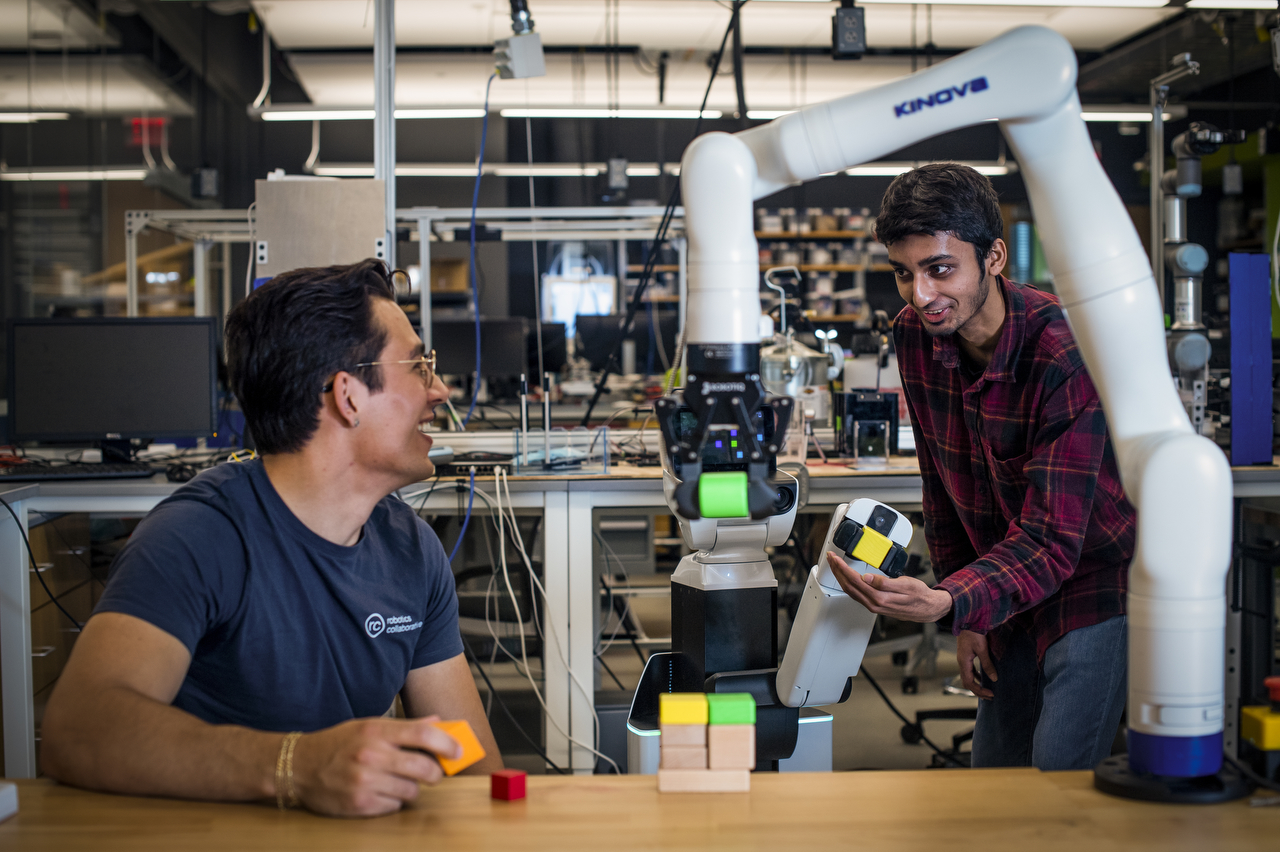
“They want to focus on geographical diversity around the globe as well as proven leadership in research in robotics at these institutions,” Padir says of the schools chosen for the program. Besides Northeastern, other selected schools include the Korea Advanced Institute of Science and Technology, the Technical University of Munich, and several Danish universities. A total of 50 students worldwide will participate.
“Experiential robotics is about our researchers experiencing different cultures and opening them up to new research directions,” Padir says. “This summer school program is one vehicle that we saw as an opportunity for our students.”
One of them, Stephen Alt, who is pursuing a master’s degree in computer science, says he is most looking forward to collaborating with other students from different countries. “This is going to be my first step outside to create an international network and to meet and learn about robotics with others globally,” he says.
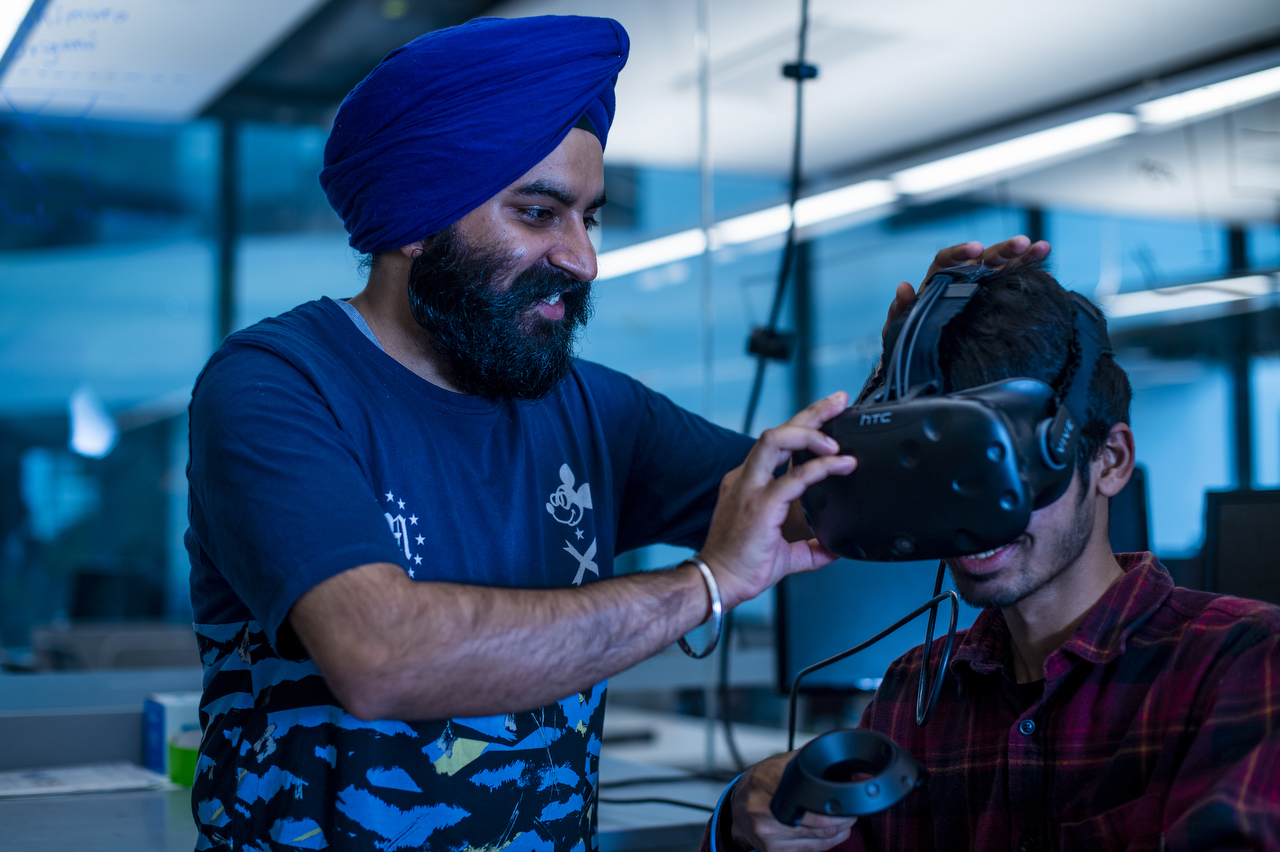
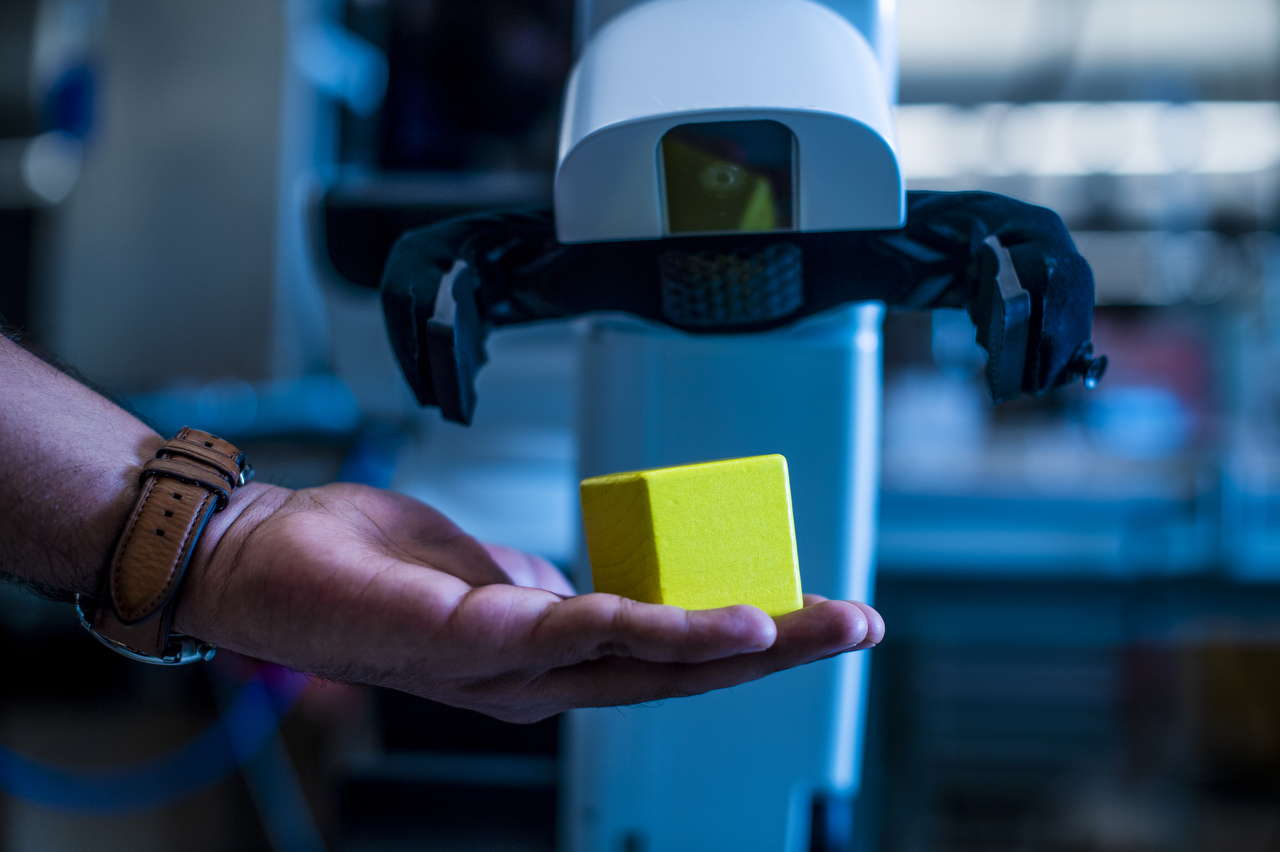
Alt and others in the robotics lab, located in the Interdisciplinary Science and Engineering Complex, specialize in advancing research into the relationship between humans and machines.
“Artificial intelligence isn’t at the point yet where a robot can do everything,” Alt says. “So it’s really important to create that connection between robots and humans and show that robots are our friends and they can help us.”
The lab houses more than $1 million worth of robots, he adds. Alt, joined by two other Denmark-bound students, Syed Mohammad Asjad, who is pursuing a master’s degree in robotics, and Jagatpreet Nir, a doctoral candidate, were demonstrating how a robot in one location could be controlled by a human many miles away.
Asjad, wearing a virtual reality headset that covered the top half of his face, and gripping controllers that moved the robot at his will, showed how, for example, a doctor could perform surgery on a patient lying in an operating room in another state.
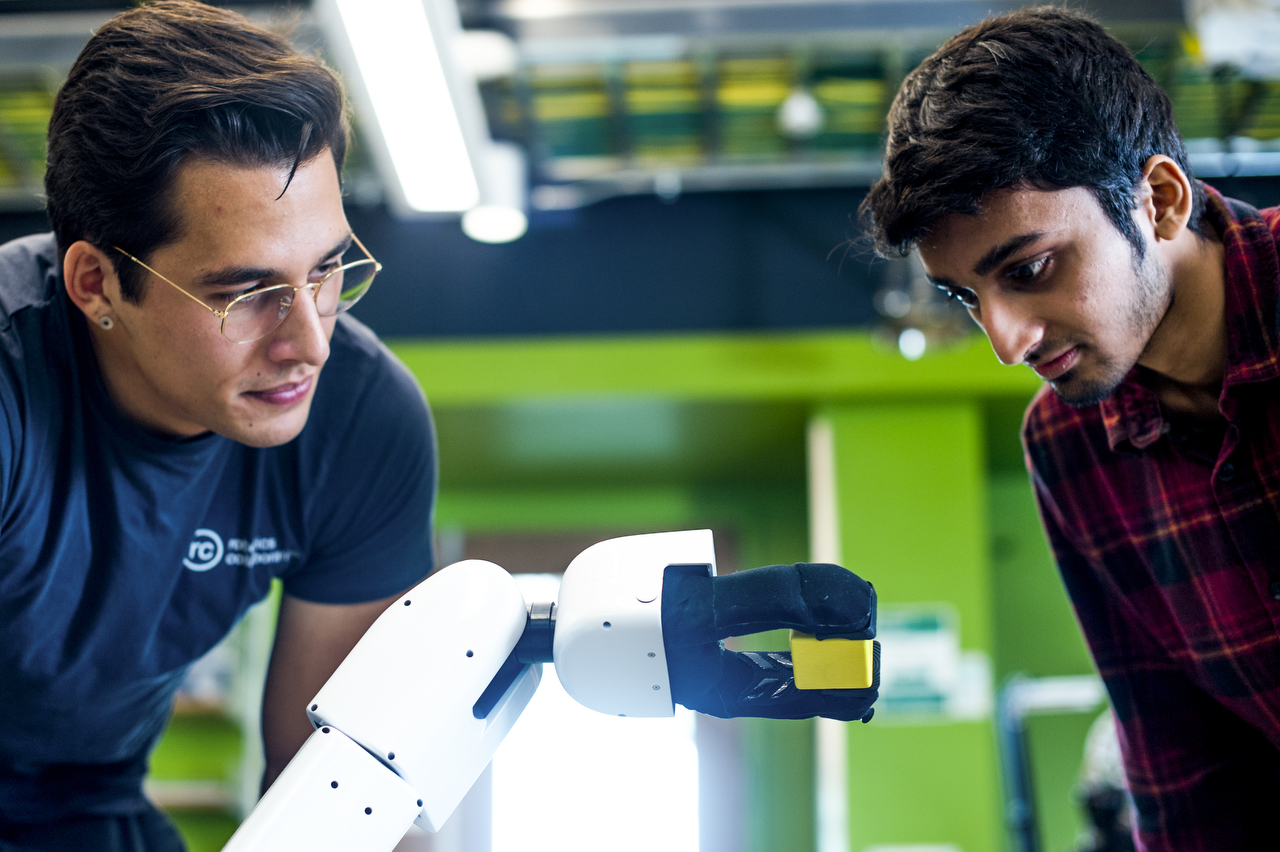
These so-called collaborative robots “are robot arms that can work in human environments,” says Padir. The market for these task-specific robots is expected to grow significantly in the next few years, he adds, and will be Northeastern’s focus at the summer program in Denmark.
Completing the six members of the Northeastern student-researcher team are Areeba Aziz, Nathaniel Hanson, and Sadjad Asghari-Esfeden.
While in Europe, the goal is to learn as much as it is to share expertise.
Alt, whose focus is on software and machine learning, says he would like to explore the mechanical engineering hardware aspect of robotics to reduce herky-jerky motions.
“I look forward to learning more about making a robot move fluidly, like a human,” he says.
Nir is excited to see industrial robots in action. There are visits to several companies on the itinerary, including a stop at Universal Robots, founded in 2005 by three university students. Nir wants to get a closer look at its medical robotics.
“I haven’t been exposed to that,” he says. “What I really would like to understand is how industrial robots are being used in the medical space because my PhD at Northeastern is on perception systems, which is basically how a robot uses its sensors to navigate the outside world.”
Asjad says Denmark is an ideal location for collaborative environments because companies don’t view one another as competitors. “They invest in each other to grow,” he says. “They even share their information and their employees. And that is why robotics is growing in Denmark.”
That same sense of teamwork is the ethos for the summer program as well, says Padir. “It’s not just a bunch of university professors interacting with students, but the students are also interacting with big industry leaders in Denmark,” he says. “It’s a gathering of minds in a sense.”
The Northeastern students will resume their studies upon the program’s completion in August, and come away with a global research perspective.
“I want them to get out of our own little circle and experience what else is happening in this important area,” Padir says. “When it comes to an emerging field like robotics, there’s no competition. There’s cooperation.”
For media inquiries, please contact media@northeastern.edu.


